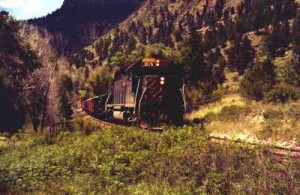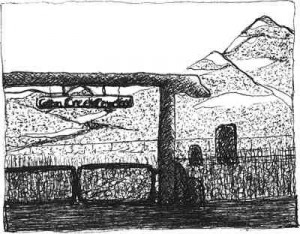Letter from Warren Nolan
Wilderness – February 2006 – Colorado Central Magazine
Editors:
In the post 9- 11 era of war, rumors of war, floods, famine, rising seas, and hurricane, I wonder if the idea of wilderness (roadless areas) isn’t quaint, isn’t a luxury, isn’t superfluous, isn’t irrelevant Doesn’t the ferocious unarguable issue of homeland security trump all else?
Yes, but maybe our thinking about security is too narrow. We define homeland security in terms of soldiers, bullets, bombs, and rockets, but I would argue that: “Purple Mountain’s Majesty,” “America the Beautiful,” “From Sea to Shining Sea,” are as essential to national security as the latest shock and awe weapon system. Like the “Bill of Rights,” “This Land is Your Land” is worth defending. More crucial to the security of America, than even bullets and bombs, may be the overall health of individual Americans and the land we inhabit.
Wilderness fosters both our physical and spiritual health; both religion and rebellion are born in Wilderness. It is where we go both figuratively and physically to rekindle hope, to regroup, to escape the Redcoats, to be renewed, to be reborn.
As a child I was mesmerized by maps. I spent hours studying national forest service maps and the official Colorado Department of Transportation highway map. I asked my father where the wildest place in Colorado was, that place furthest from any road. During my 20s I drove long distances on roads to find those places without roads. I drove to the Sangre de Cristos, the San Juans, the La Garitas, enchanted by their poetic and exotic names. As I grew older I saw the contradiction in driving roads to escape roads. I sought roadless areas closer to home, areas like the nearby Wet Mountains, the same mountains I had driven past hundreds of times before. My friends and I were amazed when we found tracts of roadless Wilderness in the Wet Mountains. We were giddy with our good fortune, we took oaths of secrecy, we feared discovery by Outside Magazine, and we knew if our Wet Mountain trails were near Boulder or Denver they would be jam- packed with people Suddenly, one of the best reasons to live in Pueblo wa
Today, it seems nothing short of miraculous that roadless areas still survive, even more amazing that many of these areas are less than 30 minutes from my house at 1922 Grand Ave. in Pueblo. This summer on one hike up South Creek Trail, near Beulah, we counted 33 wood lilies, scared up a dozen wild turkeys, caught a fleeting glimpse of a mountain lion, and walked through pockets of bear stink. But, these precious places are under siege; the stench of exhaust replaces the smell of sow and cub, and the metallic screech of churning gears rips the curtain of quiet solitude. My greatest fear is that in our unquenchable push to subdivide, to develop, to extract we will leave no tree left standing, no wild animal alive, and no wilderness untouched. That we will leave a sterile dead landscape that has more in common with the Martian landscape of science fiction than with the Biblical Garden of Eden. That the future inhabitants of this Brave New World will have morphed into some unrecognizable species, no longer re
Warren Nolan
Pueblo


